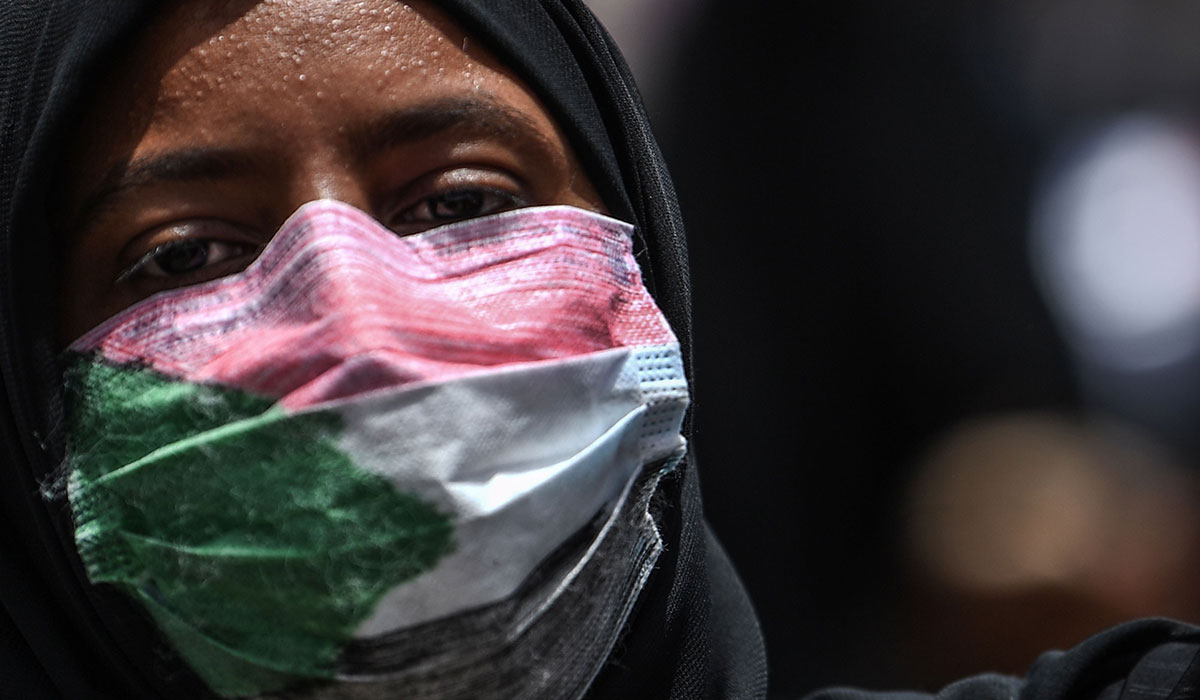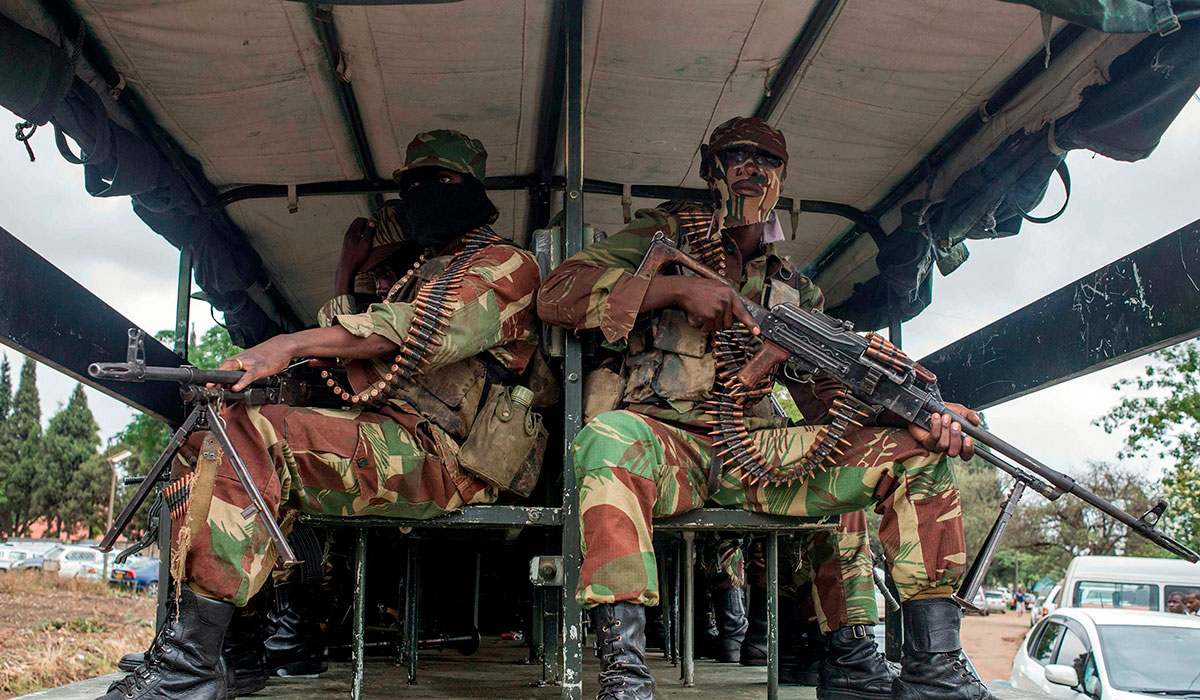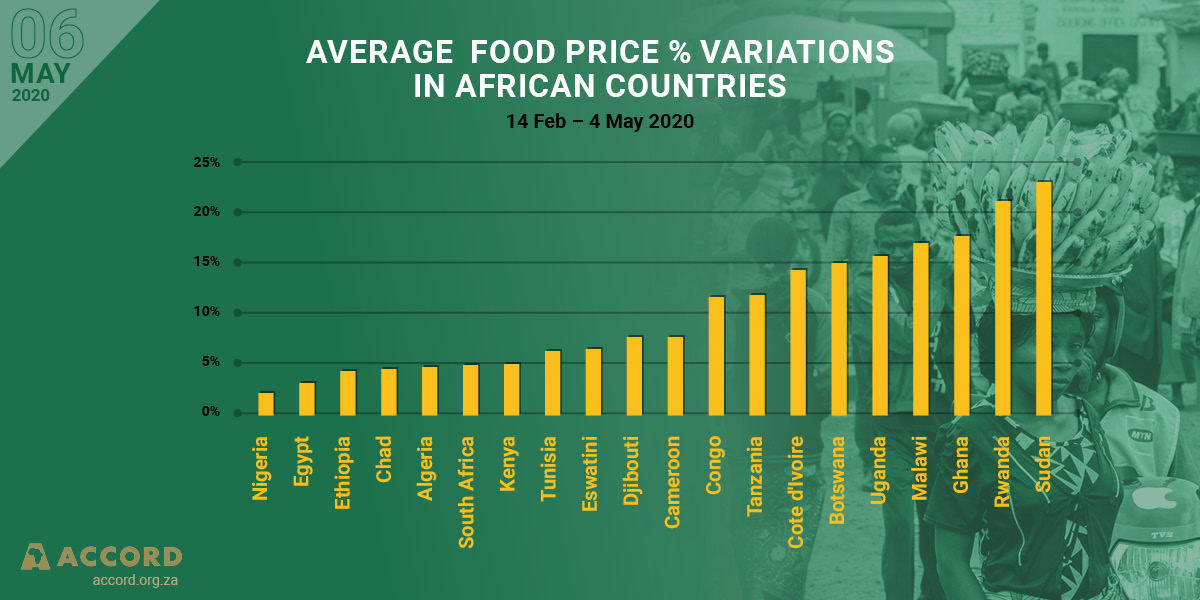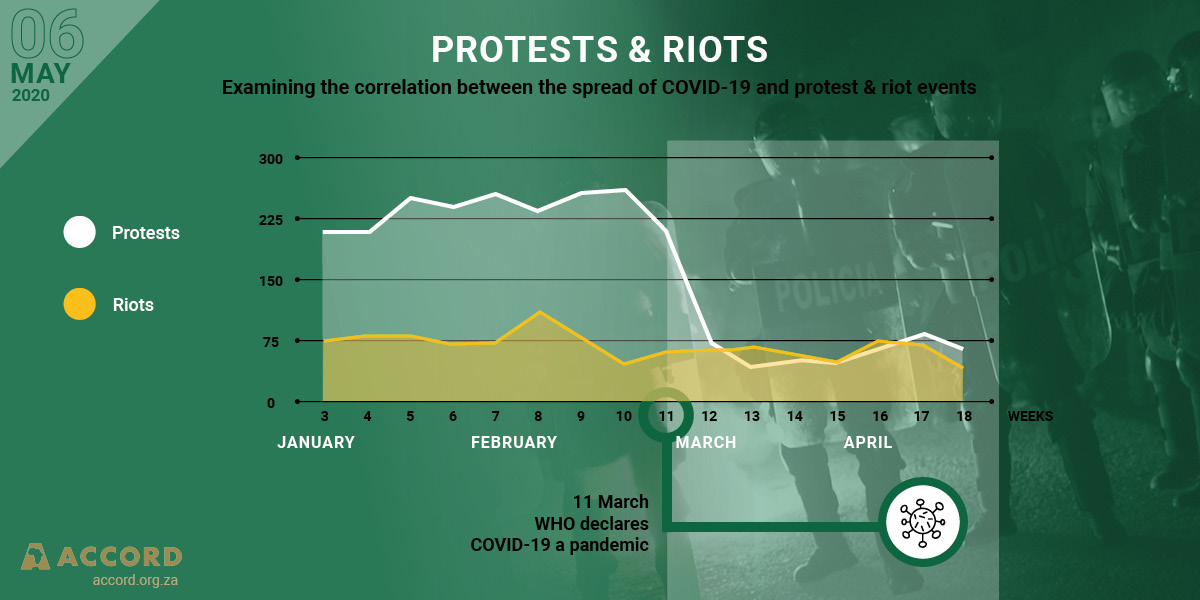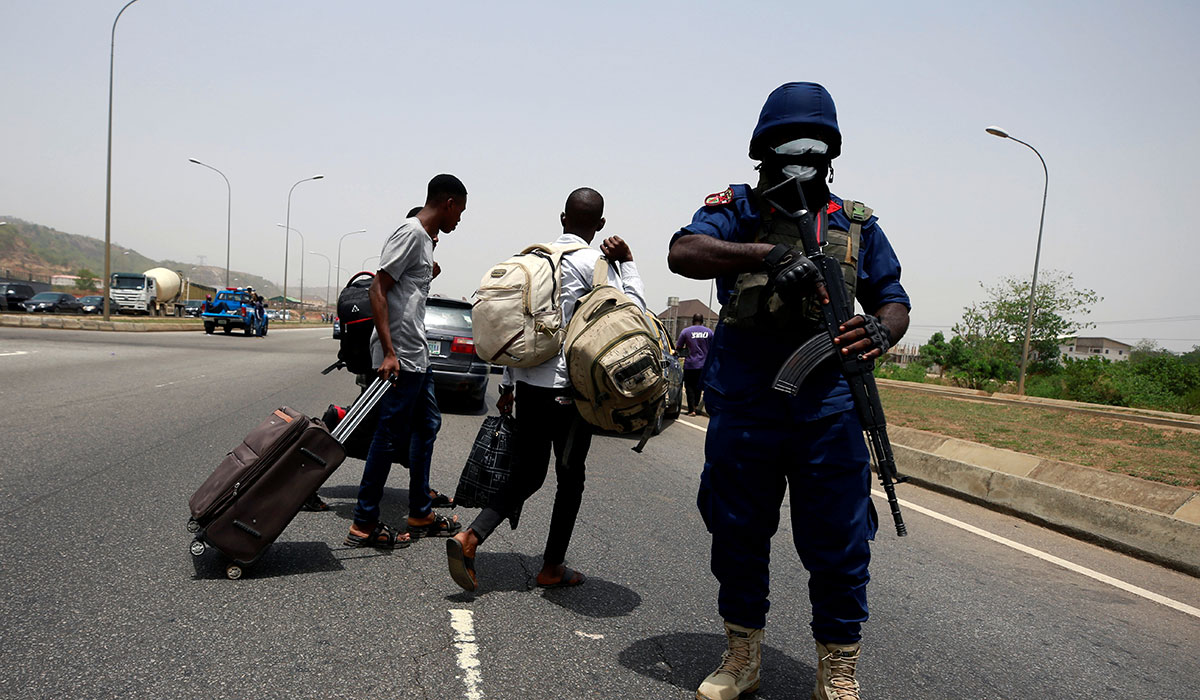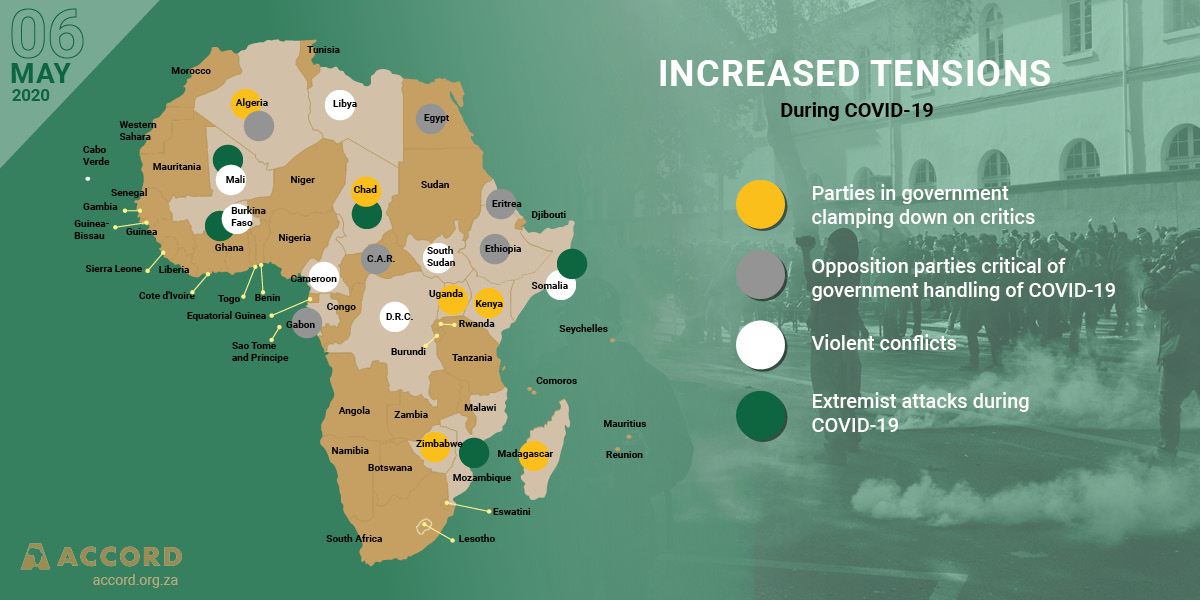In this week’s monitor Nina Wilen explores a number of potential and emerging political and socio-economic consequences linked to the measures taken to contain the spread of the COVID-19 pandemic. A number of our contributors note that Africa has introduced containment measures faster than most of their global counterparts, and this seems to have been relatively effective in slowing down the spread of the disease. For example, Judith Mondo notes that Africa has been more resilient to date, than predicted.
However, the measures also seem to be generating a number of unintended consequences. James Henry Murray and Rumbidzaishe Matambo explores the link between food (in)security, peace and stability and COVID-19. Marisha Ramdeenlooks at the impact of COVID-19 on political tensions and conflict in Africa. Martin Rupiya asks if the measures introduced to contain the pandemic can also generate new opportunites for Africa, and Tarila Marclint Ebiede argues that we should ensure that the coronavirus doesn’t disrupt peace efforts in Africa.
Whilst a number of incidents are analyzed in this week’s monitor, thus far the data we have gathered does not indicate that the overall number of social unrest or violent conflict incidents in Africa have increased as a result of the COVID-19 pandemic. If anything, the past month’s lockdown and social-distancing measures seem to have reduced the overall number of incidents. However, some of the measures taken to contain the pandemic have exposed existing fault lines and are increasing political tensions and heightening the risk for social unrest and violent conflict in the future.
ACCORD’s aim with the Monitor is to support the broader conflict resolution and peacebuilding community, including in particular ACCORD’s network of African practitioners. The Monitor tracks COVID-19 related conflict and resilience trends, with the objective of contributing to early warning analysis, and to inform our collective response strategies.

